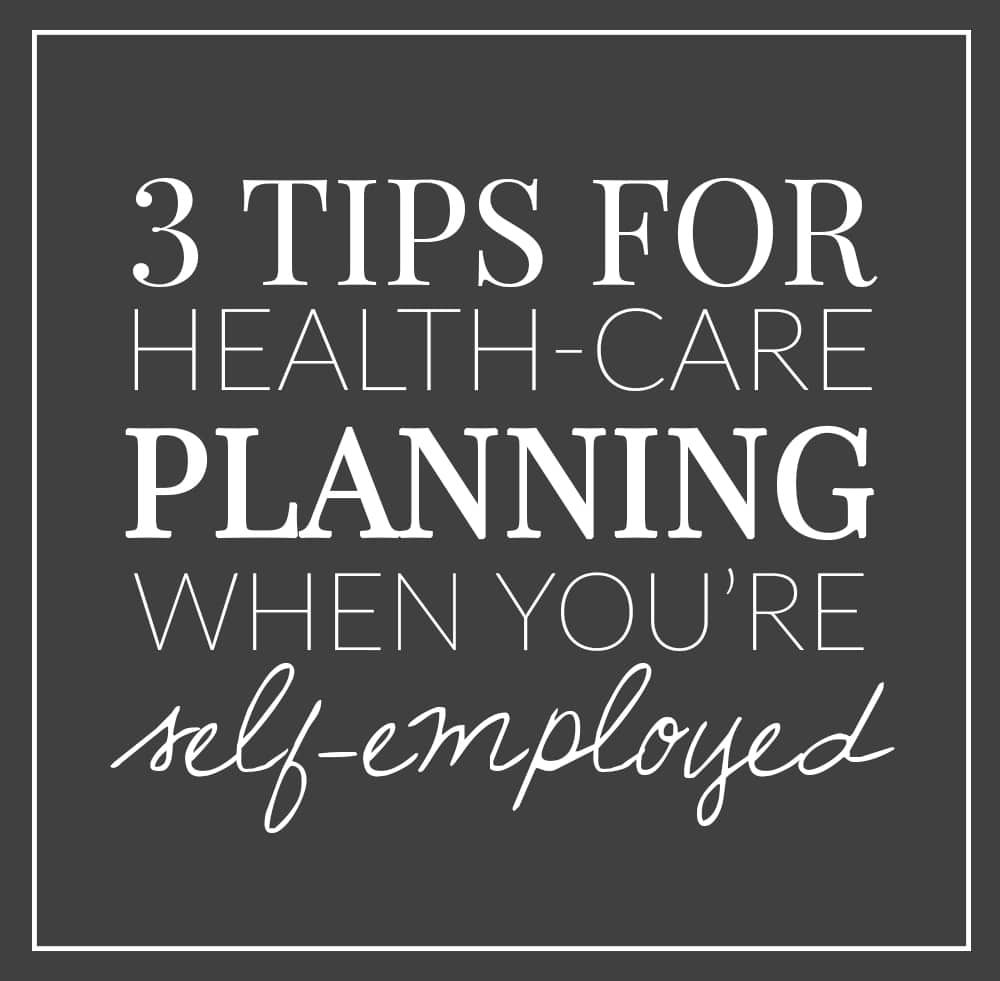One of the few things I wasn’t looking forward to when I became self-employed was looking at health-insurance. I was on my parents’ insurance until I graduated and then every company I worked with afterwards had a small selection of plans available, only a handful or less that would fit my needs. So when Nathan became self-employed as well, I knew it was time to really dig into the benefits that were offered under health insurance plans to decide what worked for us both. However, I knew we’d be looking for two very different things since Nathan has Type 1 Diabetes and I don’t have any major medical issues.
So, in order to avoid total financial disaster, we did a lot of digging to find the right plans for us both and I thought I’d share our top three tips on health care planning when you’re self-employed.
1. look at the difference between a family plan and individual plan
The two biggest factors that played into deciding whether an individual plan or a family plan was right for us included the premium and the deductible. Generally, the black and white version of health insurance is that a lower premium equals a higher deductible. Considering our health backgrounds are so different, we decided to go with two individual plans instead of a family plan as it was much cheaper. I stuck with one that had a low premium and high deductible since I don’t use my insurance that often. On the other hand, Nathan went with one that had a higher premium and lower deductible since he uses his insurance regularly.
For you, the choice may not be as obvious as it was for us, but it’s definitely something to look into.
2. know what benefits you’re paying for
Not all individual plans (or family plans) are created equal. Some pay for medications, some don’t. Some have a copay for a visit to the doctor, some don’t. Some will pay only 70% of the bill after your deductible is met, some won’t. Look at what you normally go to the doctor for and try to decide if anything will change over the next year. Things like: traveling more which means the potential to get sick more often. More strenuous work on the job so you’ll potentially be more prone to injuries. Or even lifestyle changes, such as a move or growing your family.
Being self-employed means you have more control over business decisions and changes which means you have the opportunity to better plan for your health insurance needs. Depending on how your business changes, your benefits may need to change with it so try to look at the forecast for the year ahead and make any adjustments necessary to your insurance to cover the changes.
3. look into getting disability insurance
This isn’t something that anyone wants to think about, but getting hurt, or even getting sick , can be a huge blow to you and your family if you’re self-employed. Not having disability insurance means that while you’re injured and unable to complete your work, there will not be any income coming in. For us, that’s an incredibly scary thought considering we’re both self-employed which means if we were both injured for some reason or another, we’d pretty much be screwed.
We are in the process of changing our health insurance plans for 2015, and are highly considering Aflac for the change. One of the main reasons are Aflac‘s voluntary insurance policies. These are designed to supplement major medical plans, pay policyholders directly for unexpected costs associated with a covered serious illness, injury or loss. In addition, the cash benefits can be used to help pay rent, gas, groceries, child care or any other out-of-pocket expenses a worker may have. Aflac also offers accident, dental, life, vision, cancer, hospital intensive care and other voluntary insurance policies.
Plus, in 2014, Fortune magazine included Aflac on its list of Most Admired Companies for the 13th time. This ranked the company number one in the life and health insurance category. For nearly six decades, Aflac insurance policies have given policyholders the opportunity to focus on recovery, not financial stress and that is super important to us. We’d much rather be focusing on our business instead of stressing out about paying our bills, wouldn’t you?
do you spend time planning your health care or do you just skim and check?
I was selected for this opportunity as a member of Clever Girls Collective and the content and opinions expressed here are all my own.
think this post is worth a read? please share! I’d greatly appreciate it :)
[Tweet “Three Tips For Health Care Planning When You’re Self-Employed”]


